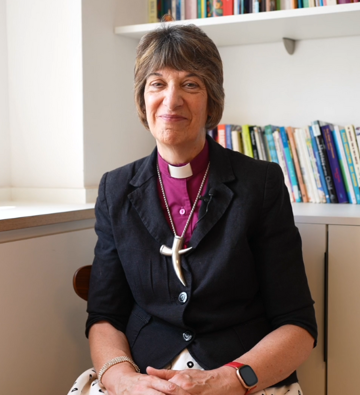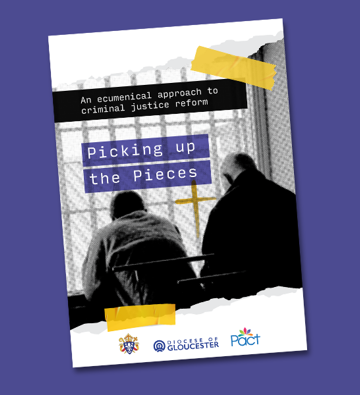Communications pack
Full communications pack to help you get involved.
Download

Pact has convened an unprecedented alliance of Christian leaders to urge decisive government action in tackling our failing justice system.
Over the past two decades, Christian churchgoers and charities have been increasingly providing the type of support to vulnerable members of society (both victims of crime and those who offend) that was once delivered by government organisations.
Ordinary Christians are doing their part; it is time for the government to take on its responsibility for maintaining a safe society where everyone in contact with the criminal justice system is treated with humanity. We believe that the government should encourage and further support the valuable work that they do.
Almost half of the population of England and Wales identifies as Christian. Christians, in common with believers of other faiths, are more likely to volunteer than non-churchgoers. In recent years, Christian congregations of all denominations have been increasingly active in picking up the pieces left behind by our failing criminal justice system, supporting victims and empowering those in prison or with convictions to turn their lives around.
There are thousands of projects run by Christian volunteers, from sporting and social activities for young people at risk of involvement in crime, to mentoring schemes, Street Pastors (more than 20,000 volunteers in more than 300 towns and cities), restorative justice projects and much more. Many people find God in prison and receive support from chaplains, both in prison and on release. There are also dozens of Christian-based charities working with people with convictions, including such well-known names as Pact, Langley Trust, and Prison Fellowship.
‘Picking up the Pieces: an ecumenical approach to criminal justice reform’ makes recommendations for reform based on the Christian churches' shared values, knowledge, and experience delivering services that make a difference in people’s lives. At the centre of these is a call to place victims and survivors at the heart of the criminal justice process.
However, in order to fulfil the ambitions of the recent Independent Sentencing Review, we need the government to focus urgently on at least three key areas:
We believe these priorities will have the greatest impact on reducing reoffending and making our communities safer for everyone.
The children and families of people in prison are the forgotten victims of the criminal justice system. Every year, there are approximately 200,000 children with a parent in prison. These children often lose contact with their parents, face stigma and shame at school and in their communities and are likely to face poorer outcomes in the long term. The government committed in its 2024 manifesto to ensure that children in this position “are identified and offered support”. We call on the government to implement this manifesto pledge.
We are fully aware that victims’ needs are routinely ignored by the criminal justice system despite pledges from governments of all political persuasions. However, we believe that pitting victims against offenders is a zero-sum equation which ignores two key facts: firstly, that many victims are primarily concerned with preventing reoffending so that others are not victimised and, secondly, that offenders are disproportionately likely to be victims themselves.
We urge the government to invest in a wider rollout of restorative justice. It meets the needs of victims and survivors, people with convictions, and wider society, as so many who participate go on to lead good lives while contributing to their local communities. Restorative justice is both much cheaper than prison and probation supervision, and its effectiveness is underpinned by strong evidence.
HMPPS has recognised that faith-based support has been an underused resource for many years. We call on the government to direct prison governors and probation regions to embrace the opportunity to work in partnership with Christian churches and other faith-based initiatives. We recommend the government establishes a £10 million small grants scheme, administered by HMPPS, (with maximum funding of £20,000 per project) to build on existing work and unleash the potential of hundreds of thousands of Christians – and people of all faiths - to support victims of crime and people involved in the criminal justice system.
The government has been explicit in its wish to reset its relationship with civil society for the benefit of all via the Civil Society Covenant. Christians in churches all over the country have been working directly with many thousands of people who are being failed by our criminal justice system. We urge ministers to consider our recommendations and take up our challenge of working together with us for a safer, fairer Britain.
Communications pack
Full communications pack to help you get involved.
Download
Social media content
Suggested social media text and graphics.
Word
Download
Newsletter text
Text about the report to include in your newsletter.
Word
Download
Letter to MP
A letter template to write to your MP showing your support.
Word
Download
